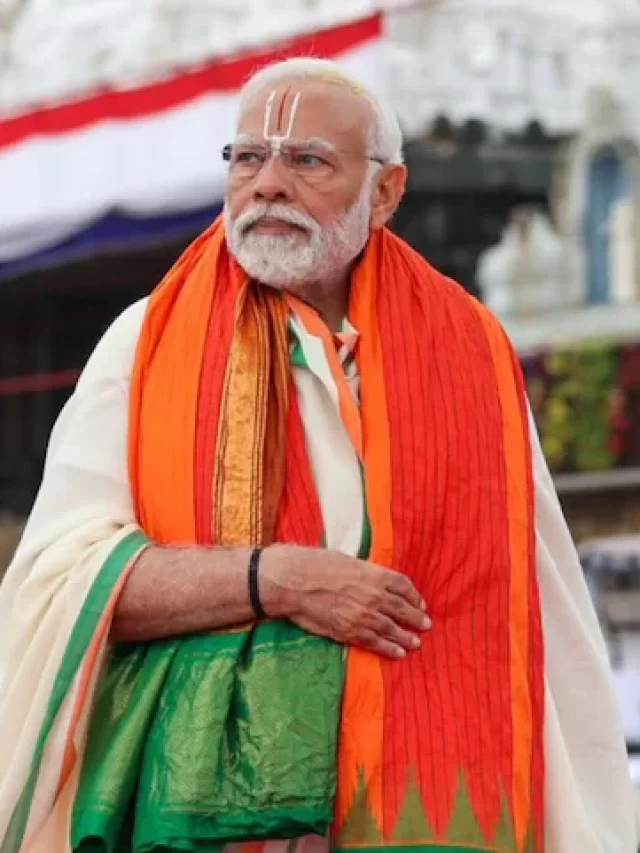Diwali, also known as Happy Diwali The Festival of Lights and Joy, is one of the most widely celebrated festivals in India and around the world. The festival holds immense significance as it symbolizes the victory of light over darkness, good over evil, and knowledge over ignorance. Much like the Festival in Navratri Puja, which celebrates the triumph of good through the worship of Goddess Durga, Diwali brings together people from all walks of life in joyous celebrations, prayers, and rituals that focus on family, prosperity, and spiritual enlightenment.
The Origins and Significance of Diwali

Diwali has deep roots in Hindu mythology and history. For many, it commemorates Lord Rama’s return to Ayodhya after his victory over the demon king Ravana, symbolizing the victory of righteousness and dharma. Diwali also honors Goddess Lakshmi, the deity of wealth, prosperity, and abundance. This focus on divine blessings resonates with the Festival in Navratri Puja, where Goddess Durga is worshiped in her many forms, each representing power, protection, and the destruction of evil.
During Happy Diwali The Festival of Lights and Joy, homes are cleaned, decorated with rangoli, and illuminated with oil lamps (diyas) to symbolize the triumph of light over darkness. Just as in the Festival in Navratri Puja, where devotees pray for strength and blessings, Diwali is also a time to invoke the goddess for prosperity, happiness, and success.
Diwali, often referred to as the Festival of Lights, is one of the most celebrated festivals in India and among Hindu communities worldwide. This vibrant festival symbolizes the victory of light over darkness, good over evil, and knowledge over ignorance. Its origins and significance are deeply rooted in ancient Indian traditions, folklore, and cultural practices.
Historical Origins of Diwali
The origins of Diwali can be traced back over 2,500 years, with its significance varying across different regions and religions. While primarily celebrated by Hindus, Diwali is also observed by Jains, Sikhs, and Buddhists, each attributing their own historical and spiritual meanings to the festival.
- Hindu Mythology: In Hinduism, Diwali is associated with several legends, the most popular being the return of Lord Rama, his wife Sita, and brother Lakshmana to their kingdom of Ayodhya after 14 years of exile. According to the epic Ramayana, they returned after defeating the demon king Ravana. To celebrate their return, the people of Ayodhya illuminated the city with oil lamps (diyas) and burst fireworks, marking the triumph of good over evil.
- The Legend of Lord Krishna: Another significant tale is that of Lord Krishna, who defeated the demon Narakasura on this day, liberating 16,100 captive princesses. This victory symbolizes the triumph of good over evil and is celebrated with joy and merriment.
- Goddess Lakshmi: Diwali is also dedicated to Goddess Lakshmi, the goddess of wealth, prosperity, and fortune. It is believed that she visits homes on Diwali night, blessing families with prosperity. Many devotees clean and decorate their homes, set up altars, and offer prayers to attract her blessings.
- Jain Festival: For Jains, Diwali marks the anniversary of Lord Mahavira’s attainment of Nirvana (liberation) and is celebrated with prayers, fasting, and reflection.
- Sikh Tradition: Sikhs commemorate Diwali as Bandi Chhor Divas, which celebrates the release of Guru Hargobind Ji from imprisonment by Mughal Emperor Jahangir. The Golden Temple in Amritsar is beautifully illuminated during this time, drawing pilgrims from across the globe.
Cultural Significance
Diwali is not just a religious festival; it encompasses various cultural aspects that unite families and communities. Here are some key elements of its significance:
- Unity and Togetherness: Diwali brings families together, fostering a sense of unity and togetherness. It is a time for people to reconnect with loved ones, share meals, and exchange gifts, thereby strengthening bonds and relationships.
- Celebration of Goodness: The festival serves as a reminder of the victory of goodness and righteousness. It encourages individuals to reflect on their lives, eradicate negativity, and embrace positivity, hope, and moral values.
- Joy and Festivity: The joyous atmosphere during Diwali is palpable, marked by the vibrant decorations, colorful rangolis, and the warmth of family gatherings. The festival inspires happiness, laughter, and celebration, providing a much-needed respite from the hustle and bustle of everyday life.
- Environmental Awareness: In recent years, there has been an increased awareness regarding environmental concerns related to Diwali celebrations, particularly regarding pollution from fireworks. Many communities are now opting for eco-friendly celebrations, focusing on sustainable practices, such as using clay diyas, natural colors for rangoli, and limiting firecracker usage.
Diwali, with its rich historical origins and profound cultural significance, transcends boundaries, uniting people across the globe in celebration. It is a festival that not only honors traditions but also emphasizes the importance of goodness, family, and community. As the world continues to evolve, the essence of Diwali remains constant—lighting up our lives with hope, joy, and positivity. Whether through the flickering of diyas, the sharing of sweets, or the sound of laughter, Diwali continues to inspire and uplift, making it a cherished festival for all.
The Five Days of Diwali

Diwali is a five-day festival, with each day holding special significance, much like the nine nights of Festival in Navratri Puja.
Diwali, also known as the Festival of Lights, is a grand celebration that spans five days, each with its own significance, rituals, and festivities. This vibrant festival is celebrated by millions of people across India and in various parts of the world. The spirit of joy and togetherness during Diwali resonates with other festivals in India, such as the Festival in Navratri Puja, emphasizing devotion and community. Let’s explore the five days of Diwali and the unique customs associated with each day.
Day 1: Dhanteras
Significance: Dhanteras marks the beginning of the Diwali festival. The name “Dhanteras” is derived from “Dhan,” meaning wealth, and “Teras,” meaning the thirteenth day of the lunar month. This day is dedicated to Lord Dhanvantari, the god of health and medicine, and Goddess Lakshmi, the goddess of wealth.
Rituals: On Dhanteras, people clean and decorate their homes, often purchasing new utensils, gold, or silver as a symbol of prosperity. Many also set up an altar to worship Lord Dhanvantari and offer prayers for good health. It is customary to light diyas (oil lamps) and place them in front of the house to welcome the goddess.
Day 2: Naraka Chaturdashi (Choti Diwali)
Significance: The second day of Diwali is known as Naraka Chaturdashi or Choti Diwali. This day commemorates the victory of Lord Krishna over the demon Narakasura, symbolizing the triumph of good over evil.
Rituals: On Choti Diwali, people wake up early in the morning, take a ritual bath, and apply fragrant oils as a purification ritual. They light diyas and burst crackers in the evening to celebrate the victory. Homes are often adorned with colorful rangolis (decorative patterns made from colored powders), and families gather for festive meals.
Day 3: Diwali (Lakshmi Puja)
Significance: The main day of Diwali is dedicated to the worship of Goddess Lakshmi, the goddess of wealth and prosperity. It is the most celebrated day of the festival.
Rituals: Families perform Lakshmi Puja in the evening, welcoming the goddess into their homes. The puja involves cleaning the house, decorating it with flowers and lights, and offering sweets and fruits. People dress in new clothes and exchange gifts and sweets with family and friends. Fireworks light up the night sky, adding to the festive atmosphere.
Day 4: Govardhan Puja (Annakut)
Significance: The fourth day of Diwali is celebrated as Govardhan Puja or Annakut. It commemorates the lifting of the Govardhan Hill by Lord Krishna to protect the villagers from heavy rains caused by Indra, the rain god.
Rituals: On this day, devotees prepare an elaborate feast with a variety of dishes and offer it to Lord Krishna as a gesture of gratitude. In many regions, devotees create a mini mountain using cow dung, symbolizing Govardhan Hill, and decorate it with flowers and food items. People also gather with family and friends to celebrate with joyous meals and prayers.
Day 5: Bhai Dooj
Significance: The final day of Diwali is known as Bhai Dooj, which celebrates the bond between brothers and sisters. It is similar to Raksha Bandhan, where sisters pray for their brothers’ well-being, and brothers express their love and commitment to protect their sisters.
Rituals: On Bhai Dooj, sisters perform aarti (a ceremonial prayer) for their brothers and apply a tilak (a ceremonial mark) on their foreheads. In return, brothers give gifts and promise to protect their sisters. This day strengthens the bond of love and affection among siblings and is celebrated with delicious feasts and family gatherings.
The five days of Diwali are filled with joy, love, and rich traditions that symbolize the triumph of light over darkness and good over evil. Each day holds its unique significance and rituals, fostering unity among families and communities. The parallels between Diwali and other festivals in India, such as the Festival in Navratri Puja, highlight the cultural richness and shared values of devotion and community spirit. As families come together to celebrate, Diwali serves as a reminder of the importance of togetherness, gratitude, and the joys of life. The spirit of Diwali continues to shine brightly, illuminating hearts and homes around the world.
The Connection Between Diwali and Navratri
Both Diwali and the Festival in Navratri Puja emphasize devotion to the divine, family unity, and the power of goodness. While Festival in Navratri Puja celebrates the nine forms of Goddess Durga, Diwali honors Goddess Lakshmi and Lord Rama, representing wealth and righteousness, respectively. Both festivals involve lighting lamps—diyas during Diwali and earthen lamps during Navratri—to symbolize the dispelling of darkness and the ushering in of light and positivity.
Additionally, just as Navratri features elaborate dances and prayers (like Garba and Dandiya) in honor of the goddess, Diwali features fireworks, cultural performances, and the sharing of sweets and gifts, further strengthening the bond between family members and friends.
Rituals and Traditions
The Happy Diwali The Festival of Lights and Joy is filled with rich traditions and cultural practices. Families come together to clean and decorate their homes, just as they do during the Festival in Navratri Puja. During both festivals, the homes are transformed into sacred spaces, filled with the fragrance of incense and the soft glow of oil lamps.
On the day of Lakshmi Puja, elaborate rituals are performed to worship Goddess Lakshmi, with families offering prayers for wealth and success. Just as the Festival in Navratri Puja involves the worship of Goddess Durga in Happy Diwali The Festival Of Lights And Joy many forms, Diwali includes the invocation of multiple deities, including Lord Ganesha, the remover of obstacles, and Saraswati, the goddess of wisdom and learning.
Another important aspect of Diwali is the exchange of gifts and sweets, which strengthens relationships and spreads joy. Similar to the Festival in Navratri Puja, where families come together to celebrate the goddess, Diwali fosters togetherness, encouraging people to share love and happiness with others.
The Global Celebration of Diwali
Just like the Festival in Navratri Puja, which has grown in popularity globally, Diwali has transcended geographical boundaries. It is celebrated by millions of people worldwide, including the Indian diaspora in countries like the United States, the United Kingdom, Australia, and Canada. The global appeal of Diwali is a testament to its universal message of light, hope, and positivity, much like Navratri’s emphasis on the triumph of good over evil.
In many places, public Diwali celebrations include fireworks displays, cultural events, and community prayers, drawing people from different backgrounds to join in the festivities, similar to the community gatherings and events during the Festival in Navratri Puja.
Both Diwali and the Festival in Navratri Puja are joyous celebrations that bring people together in devotion, unity, and happiness. While Navratri focuses on the worship of the goddess Durga and the triumph of Google over evil, Diwali celebrates the return of Lord Rama, the blessings of Goddess Lakshmi, and the victory of light over darkness. These festivals serve as reminders to embrace the light within ourselves, cultivate goodness, and strengthen our relationships with others.
As we light diyas this Diwali, may we also reflect on the teachings of the Festival in Navratri Puja—to live with integrity, compassion, and love, and to always strive for the betterment of ourselves and our communities. Happy Diwali The Festival of Lights and Joy to all!



